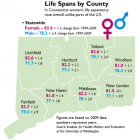Post 9/11 Veterans Suffering From PTSD And Nation’s Indifference
|
Since serving in the military post 9/11, veterans Michael Thomas, Tiara Boehm and Jay Murray have endured losses they attribute to Post Traumatic Stress Disorder (PTSD), including destroyed marriages, friendships and careers. PTSD, a debilitating mental health condition, afflicts between 5 and 23 percent of the 3 million veterans who have served since the 9/11 terrorist attacks. It costs the federal government more than $2 billion just in the first year of PTSD care for veterans, according to a 2012 Congressional Budget Office study. But, 17 years into the current conflicts, the link between PTSD and life consequences in this cohort of veterans is still unproven because there haven’t been longitudinal studies on it. Veterans’ advocates say this is a symptom of national indifference to the ongoing wars.



